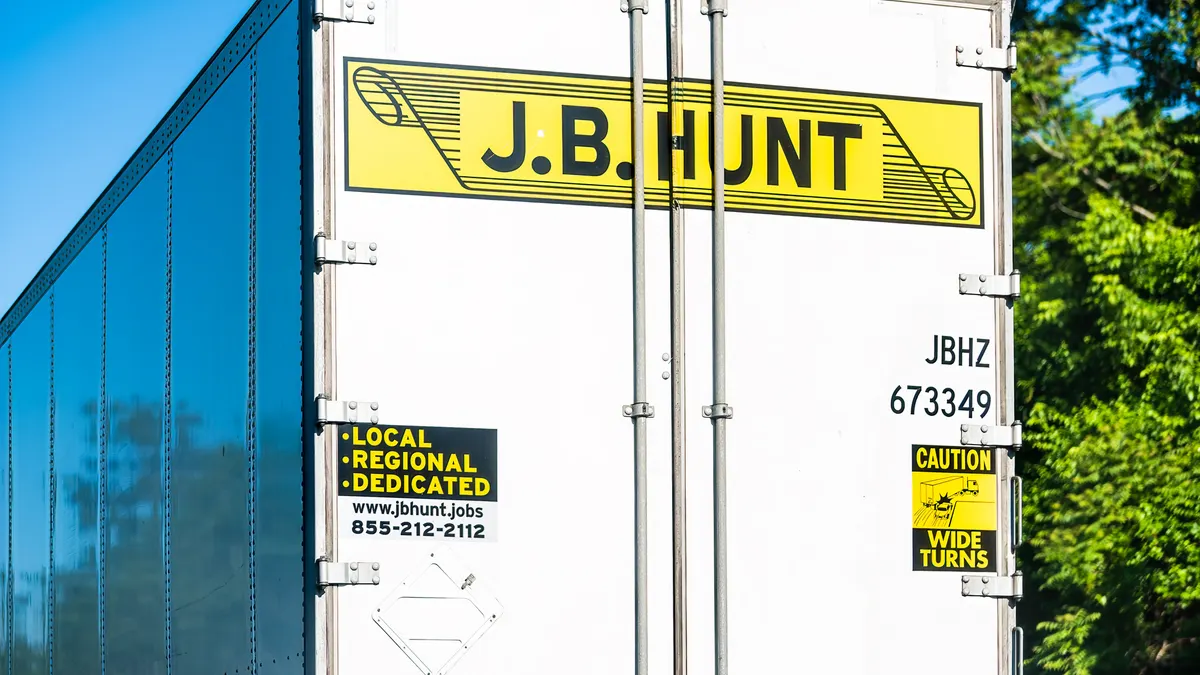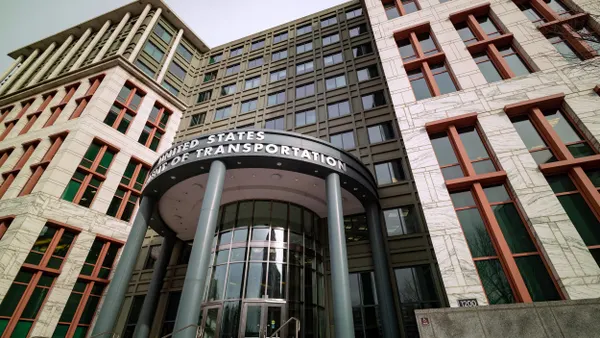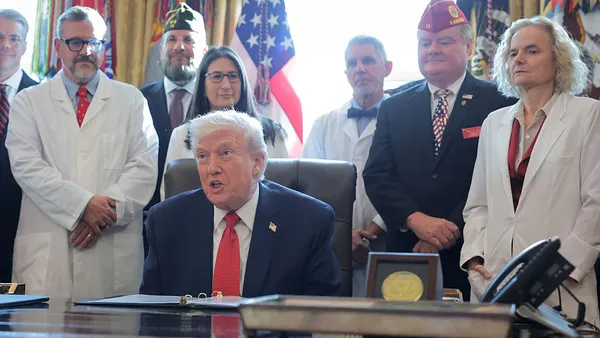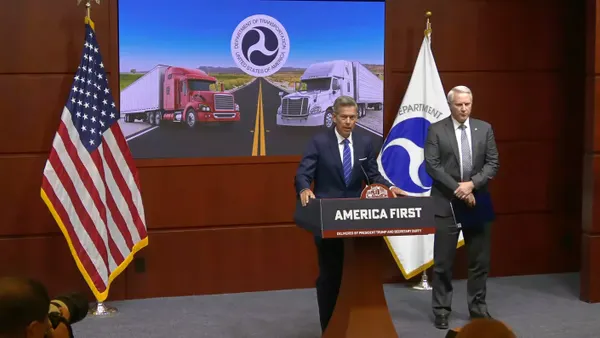Not everyone understands the necessity of laws requiring facilities to open their restrooms to truck drivers.
Then again, not everyone has sat in a truck for 11 hours — or fielded the complaints the Washington Trucking Associations has about urine-filled bottles left in dumpsters and along roadsides.
The association supported restroom access legislation that goes into effect next month, and a similar effort is in the works at the federal level.
Restroom access for drivers is “giving somebody an opportunity for basic human dignity,” said Sheri Call, Washington Trucking Associations’ president and CEO. “At the other end of the spectrum, we’re the organization that gets the call when there’s bio-waste being disposed of. ... In self-interested terms, we're just hoping to try and curb that issue a bit.”

Call spoke with Transport Dive by phone about the law in Olympia, its origins and its intent.
Editor’s note: This interview has been edited for brevity and clarity.
TRANSPORT DIVE: This bill built on an previous piece of restroom access legislation, correct?
SHERI CALL: Last year’s bill, House Bill 1706, ended up becoming very narrowly focused on port restroom access.
The creation of this bill, originally, was between a truck driver and his legislator. It was a constituent, a truck driver, who reached out to then-state Rep. Mike Sells and said, ‘Something needs to be done. We're being denied restroom access everywhere we go.’
The awareness of the work of a truck driver and the importance in our lives was pretty elevated during the pandemic. And so the timing was just right to do it.
What results came from last year’s law?
CALL: A portal was created with our Department of Health, where drivers could file issues and complaints about being denied, or a lack of restroom access.
That was done, it was in place, and the thought at the time was that we would go back at it and try to expand it to places where trucks pick up and deliver.
What opposition did this year’s law face?
CALL: Hospitality and retail weren't too keen on the bill, because they're already required to provide restroom access, and they didn't want to get into something else that might put more regulation of restrictions on their operations. They assured us that there's not much denial of restroom access to truck drivers and their facilities. They're made available to the public.
But in the case of shipper and receivers, where there's not much public traffic — but a location would have to have a restroom available for employee use — we're just asking that that restroom also be made available to a truck driver, even though they're not an employee of the location. That's really the gist of it. We're not actually asking for anyone to change anything, and it's not about enforcement. It's about access.
How much does this issue stem from the pandemic? Or is it a longtime problem just now getting attention?
CALL: The pandemic raised the awareness of a truck driver’s lack of ability, without proper planning, to maintain any kind of sanitary work conditions out there on the road. A driver contacted me about having no option but to use a portable toilet in a weigh station area.
It stemmed as much as anything from the pandemic in that regard.
Any thoughts on the push for a similar federal law?
CALL: I was really pleased to see this being taken up again at the national level. And I know that a couple of states, toyed with the idea as well. I don't know if anyone else has succeeded. But I’d just really like to see it take hold across the nation.










